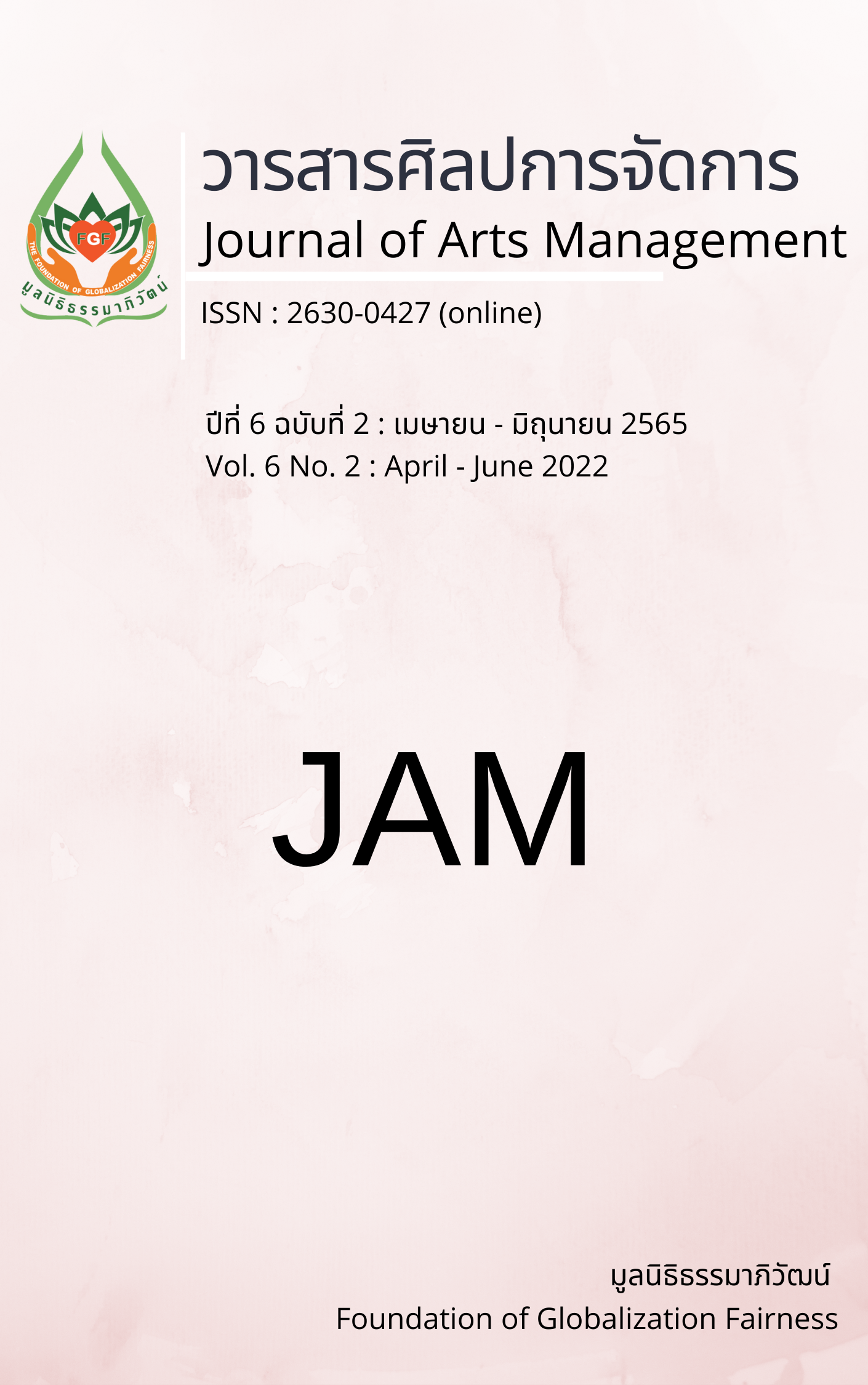The Development of A competency Model in Culinary Preparation According to Nutrition Principles for the Elderly
Main Article Content
Abstract
This article aimed to 1) synthesize nutritional competency; 2) study and develop a cooking competency model; and 3) study the results of training on cooking competency. The sample used in the study consisted of 13 elderly people in Chonburi province using a voluntary byelective method. The tools used were 1) a public assessment form for considering competency occupation standards, 2) an opinion assessment form on the competency model, 3) a competency training model assessment form, and 4) a cooking competency assessment form according to principles of nutrition for the elderly. Data analysis consisted of qualitative analysis and quantitative data analysis such as frequency, percentage, mean, and standard deviation analysis.
The results of the research were as follows: 1) The results of the synthesis of nutritional competency for the elderly consisted of 9 units of core competence and 18 units of sub-competence.
2) The results of the study and development of nutritional competency for the elderly consisted of (1) competencies and sub-competences as detailed in the competency base module of the training. Increase core competencies to 10 units and sub competencies to 19 units, (2) results of the assessment of behavioral objectives of the Culinary Competency Curriculum and assessment results of performance criteria used in the Culinary Competency Training. It was found that it was at the appropriate level, and (3) results of the assessment of the training management on nutritional competency basis for the elderly. Overall, it was at the highest level.
3) The results of training on nutritional competency education for the elderly found that 13 trainees passed the specified criteria.
Article Details

This work is licensed under a Creative Commons Attribution-NonCommercial-NoDerivatives 4.0 International License.
Views and opinions appearing in articles in the Journal of Arts of Management It is the responsibility of the author of the article. and does not constitute the view and responsibility of the editorial team I agree that the article is copyright of the Arts and Management Journal.
References
Chaleekrua, P. (2018). Strategies for improving the quality of life of the elderly of Chaiyaphum provincial administrative organization. Journal of MCU Peace Studies, 6(4), 1620-1632.
Damnoen, P. S., & Dhirabhaddo, P. N. (2019). The development of indicators of active aging enhancement in Buddhist way for the retirement of elderly. Journal of Graduate MCU Khonkaen Campus, 6(3), 209-228.
Damnoen, P. S., Chantupamo, P. T., Vuddhano, P. T., Chaivoramankul, Y., & Hongthong, T. (2019). The synthesis of indicators of active aging enhancement according of Buddhist integration for the retirement of elderly, Journal of MCU Nakhondhat, 6(7), 3613-3625.
Deesuwan, P., Jongsiri, N., Pongpan, S., Kamnuan, P., Sriwongpan, P., & Intem, N. (2021). Development of highly popular local food for enhancing health of aging people in upper northern Thailand. Journal of Health Science, 30(3), 415-426.
Mahidol University. (2021). Nutrition of the elderly. https://www.gj.mahidol.ac.th/main/knowledge-2/nutrition/.
Ministry of Social Development and Human Security. (2021). Strategy of the Department of Elderly Affairs 2017-2022 (Revised Edition No. 2/2020). https://www.dop.go.th.
National Statistical Office. (2021). Demography, population, and housing branch. http://statbbi.nso.go.th/staticreport/page/sector/th/01.aspx.
Phimphandee, W. (2019). The empowering resilience among the elderly in eastern economic corridor according to Buddhist principles. Journal of MCU Peace Studies, 7(3), 737-752.
Savangkij, W. (2019). Development of elderly people’s information technology competency in Chiang Rai province by competency-based training. Journal of Chandrakasemsarn, 25(2), 80-94.
Wutikorn, K. (2016). Competency development pattern for elderly caregivers. Sripatum Review of Humanities and Social Sciences, 6(2), 50-60.


